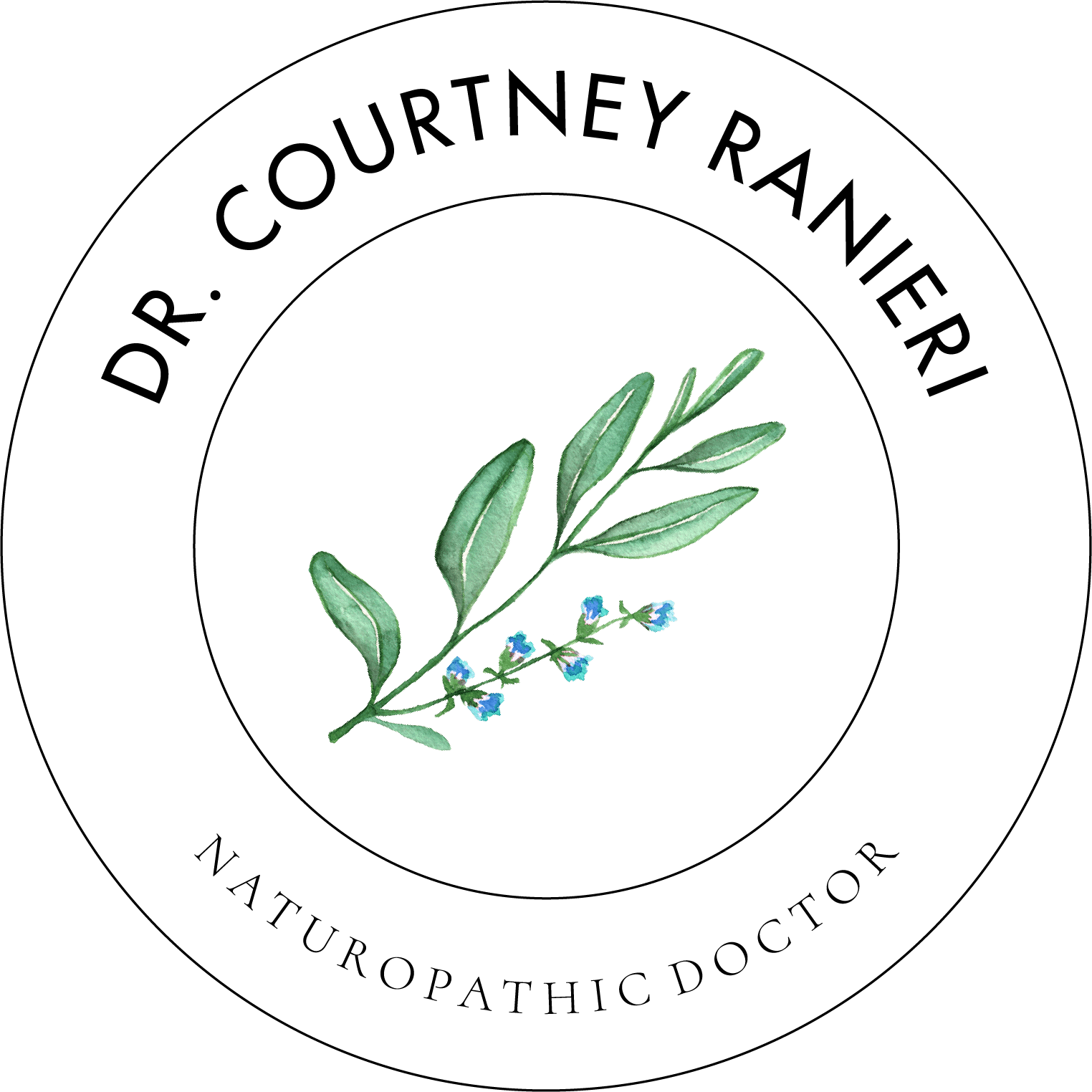Let’s Talk About PCOS – Symptoms, Testing + TreatmentS
It’s estimated that Poly-Cystic Ovarian Syndrome (PCOS) effects 1 in 10 women, yet less than 50% of women are properly diagnosed, delaying treatment and management.
PCOS is complex + multifaceted – but there’s lots we can do to help manage PCOS symptoms like infertility, acne, hair loss, insulin dysregulation, and weight gain.
What Causes PCOS?
Although the exact cause of PCOS is unknown, we do know that it has to do with a combination of genetic factors, environment, diet and of course, hormones.
PCOS is often thought of as secondary to obesity, however, women at a normal weight can also have PCOS.
We believe that high insulin levels and insulin resistance are at the root of PCOS. High insulin levels causes the ovary to release more testosterone, preventing normal ovulatory function, which can lead to infertility. It also causes acne, male-pattern baldness and increased hair growth on body or face. Insulin resistance is also the cause of Type 2 Diabetes, therefore women with a family history of diabetes are at a higher risk of developing PCOS.
How do I know if I have PCOS? PCOS manifests in different ways for each woman.
Symptoms of PCOS
- irregular or absent cycles (usually longer than 35 days or shorter than 21 days apart)
- acne – on the face, body, jawline or neck
- increased hair growth on the body, face or grown
- weight gain or difficulty losing weight
- difficulty becoming pregnant
- thinning hair on head (male-pattern baldness)
- oily skin⠀
- ovarian cysts
How is it Diagnosed?
Despite it’s name, you actually don’t have to have poly-cystic ovaries to have PCOS – it’s only 1 of 3 criteria to used diagnose PCOS. The 3 Rotterdam Criteria for PCOS are:
- Irregular or anovulatory (meaning no ovulation) menstrual cycles
- Hyper-Androgenism – either diagnosed via:
- Clinical symptoms (like presence of acne, hair growth etc) OR
- Biochemical (high testosterone, DHEAs)
- Polycystic Ovaries (at least 10 cysts on one ovary) via ultrasound
To be diagnosed with PCOS, you must have 2/3 of the criteria present.
In addition, I usually run further testing in my practice to better understand the type of PCOS each women is experiencing (see below).
PCOS + Fertility
PCOS is one of the most common causes of infertility. This is because women who experience PCOS and have irregular cycles may not be ovulating, making it difficult to become pregnant. Good news: we can be work to regulate your cycle and improve your chances at fertilty (see below)⠀
Natural Treatments
There’s no ‘cure’ for PCOS, but specific nutrition, supplements and lifestyle changes are can be beneficial to regulate cycles, improve fertilty and manage the multifaceted symptoms of PCOS.
As a Naturopathic Doctor, treatments are tailored specifically for each patient depending on their individual PCOS symptoms and goals.
- Nutrition
- Focusing on a PCOS-specific diet plan to help manage blood sugar, insulin, hormones and inflammation
- Improve BMI, if necessary – managing weight is one of the most important ways to help with PCOS for patients who have a high BMI
- Regulate Hormones
- Optimizing hormonal health to help regulate cycle, manage high testosterone or insulin, improve skin and other hormonal symptoms
- Comprehensive Lab Testing
- I run comprehensive lab testing if necessary to help us understand your health better and guide treatments to improve PCOS. This can include Estrogen (Estradiol), LH: FSH ratio, Progesterone, Insulin and/or HbA1C, TSH (and T3, T4, anti-TPO), free testosterone, DHEAS, Cortisol and Anti-Mullerian Hormone (AMH).
- Botanicals + Supplements
- Targeted supplements and botanicals to improve PCOS symptoms and regulate cycles
- Vitamin D, Magnesium, Chromium, Vitex, Fish Oils, N-Acetyl Cysteine, berberine, Inositol + more have all been shown to help with symptoms of PCOS
- Optimizing a Healthy Hormone Lifestyle
- There is good research on the importance of optimizing sleep, energy and balancing mood + exercise for PCOS
- Acupuncture is another wonderful tool to help manage PCOS symptoms
If you are interested in optimizing your hormonal health, fertility or looking for support with PCOS, I am a Naturopathic Doctor in Toronto, Mississauga and Vaughan and would love to help you reach your health goals.
In health,








